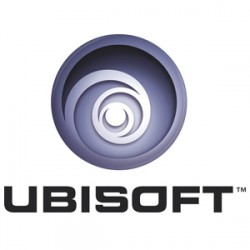Weekly News Roundup (9 September 2012)
Hello there (saying this in my head in my best Obi-Wan Kenobi impersonation). Another week, another WNR. I know I’ve said it before (and this is the main problem, actually), but it’s hard coming up with a fresh and interesting intro, or just any intro, for the WNR week after week. I guess I could talk about the August NPD stats, which gave the Xbox 360 yet another monthly win as the most popular home based console (an 18 month record that will very likely end come the holidays, when the Wii U is released). But it’s depressing talking about the video games sales stats for the US, not only because the stats themselves are depressing (and they are), but it also reminds me how regular our NPD analysis feature used to be, and how, um, it’s not any more.
Let’s get through the news then …

If you had to guess which Hollywood celebrity would be the next to get himself involved in the digital culture wars, Bruce Willis was probably not the first name you would have guessed. So when the story that the Die Hard action hero was set to become a new type of hero, by standing up to Apple and fighting for our right to own the media we “buy”, it just seemed a little too good to be true. And guess what? It was!

What would John McClane do about Apple’s insistence that what you buy on iTunes will expire once you expire?
The story goes that Bruce Willis wanted to leave his considerable iTunes music collection to his kids after he dies (cue Bruce Willis is dead Internet rumours), but he is unable to do so because Apple’s user agreement (you know that 58 page thing that you didn’t read and clicked “I agree” anyway) does not allow licenses to be transferred. While it’s p0ssible to download a local copy of all the songs, they will all instantly and technically become illegal downloads once Bruce passes away, as the user agreement would then be invalidated at that sad moment. And Bruce, unwillingly to let this one go just like his off-duty alter ego John McClane wouldn’t let terrorists die without screaming memorable catchphrases just before or after, decided to do something about it and take on Apple in a lawsuit to fight for his, and all of our, rights.
But the story turned out to be yet another Internet rumour, one that seems to have been started by the UK’s usually credible Sunday Times (although their lack of a source for the story was a big warning sign), but it does raise an important point and bring it to the public consciousness, which is all that the fictional Internet hero Bruce Willis would have wanted anyway with his imaginary attempt to sue Apple.
As consumers, we really do put up with far too much from companies that, at the end of the day, are totally dependent on our patronage. Said companies are also far too eager to take advantage of our want for their products, tempting us with the next delicious iDevice, all the while taking away the rights that we’ve always taken for granted. In iTunes’s case, there really shouldn’t be any difference between a digital download that you burn to a CD (or store on a hard-drive), and a CD that you buy in a shop (that you then rip to your hard-drive). If anything, you should be able to do more with your digital downloads, because you *can* do more with them. But to be fair to Apple, they’re forced into doing this by the real powers to be – the record companies, who are just short-sighted and greedy enough to insist on something like this.
So whether it’s taking away our right to – own is probably the wrong word – forever hold a usable, transferable, license to the stuff that we pay for, digital or otherwise, or to harsh DRMs that we have to put up with that limits our right to do what we need and want with the same purchased goods, it’s really up to us, and heroes like the imaginary Bruce Willis, to fight for these rights.

Ubisoft’s controversial always-on DRM has been scrapped by the company, now hoping to make back lost customers due to their DRM shenanigans
And voting with our wallets, as hard as it may be sometimes, may be the best way to fight. With Blizzard still on a high following the financial success of Diablo III and its “always-on” DRM that seems to have prevented piracy (although clearly not hacking), another company has not been so lucky with its own “always-on” DRM experiment. Ubisoft, in an interview this week, finally admitted that their infamous UbiDRM has failed, and the company will no longer use the draconian DRM for their upcoming PC games.
Despite at first hailing the DRM as a huge success in reducing piracy rates, Ubisoft recently revealed that their piracy rate now was as high as 95%, certainly higher than other publishers which have never used “always-on” DRM. The quality and pricing of games may be a factor, but it could also be a factor that gamers deliberately chose not to buy Ubisoft titles as a way to protest the use of the harsh DRM measures.
Regardless, Ubisoft will now stick to an once only online authentication, and offer full offline gameplay for all their upcoming PC games, including Assassin’s Creed III. It’s good news for gamers, but it may be too little, too late, as the company’s reputation may have suffered irreparable harm from their DRM shenanigans.
Which begs the question, why has Blizzard manage to make “always-on” a “success”, at least financially? My guess is that because the game was so heavily anticipated, it still would have sold well if the requirement to play was, say, to strip off all your clothes, lather yourself with baby oil, and chant “Blizzard is awesome” backwards (the disturbing thing is that some do this anyway). The nature of the game, with online trading of in-game items, also lends itself to being more of an onliney type of game, and so in people’s minds, the requirement to be connected to the Internet to play doesn’t feel too much out of place. And also the fact that the game itself is pretty good, helped people overlook its deficiencies in terms of DRM.
It’s a tough balancing act though, because while the financial benefits are plain to see, Blizzard’s loss of reputation is not as easy to quantify. Every mistake, every server downtime, or hacking attempt, will lead gamers to blame Blizzard, as they have done so far, and it all adds up. But I guess as long as people are still willing to pay for the game (myself included), Blizzard won’t mind too much.
For those that did pirate Ubisoft games, I would hazard to guess that most of them did it via BitTorrent. Some, in order to prevent prying eyes, would have used a blocklist software in an attempt to prevent unwanted legal monitoring. Debate has raged on about whether these blocklists actually work, or simply do nothing except slow down your downloads (by blocking perfectly “innocent” peers), but researchers may have finally proved that these blocklists may not work all that well at all.
Researchers monitored 60 torrent files and eventually found hundreds of potential IP addresses belonging to monitoring agencies. But they found that only two-thirds were blocked by the blocklist software i-Blocklist. And all it takes it one agency to record your IP address, and that information can then be shared by a wide variety of groups, including law firms engaged in pre-trial settlement lawsuits, agencies helping with “three-strikes” regimes, and law enforcement agencies out to get the big fish pirates.
So the only safe way to BitTorrent, it seems, would be to use a VPN service, and one that takes your privacy seriously. VPNs can have a huge impact on download speeds, and also comes at a monthly cost that most would rather not pay, which is why so many rely on free blocklists software. The other alternatives are Usenet, or the ever shrinking pool of direct download sites. Oh, and not downloading pirated stuff.
So for now, it seems clear that the battle is being won by those seeking to monitor and stop BitTorrent pirates, but this escalation in the war against BitTorrent will probably only lead to the release of a free and totally private extension to the protocol, one that naturally guards against unwanted listening. It’s only a matter of time.
——
And another one bites the dust. Filesonic this week closed its virtual doors, or at least the website fell and couldn’t get up again, the latest victim of the US government’s crackdown on Megaupload.
Filesonic was one of the first to respond to the Megaupload takedown, some say an overreaction – it immediately shut down the ability for users to share files with third parties, as well as closing down its reward programs completely. The company had hoped it would reinvent itself as a personal cloud hosting service, but with players like Dropbox and Microsoft’s Livedrive already established, and a declining popularity that saw the website lose as much as 90% of its original traffic, it was always going to be a difficult task for Filesonic. Too difficult, apparently.
Whatever you say about Filesonic and websites like this (and yes, they did help people share pirated goods), they did have their (legal) uses too. If you had to share a 20MB file with several dozen people, email is not going to cut it, and unless you have your own web server, then services like Filesonic are essential. With that said though, without the need for pirated storage, there might not have been the need for so many players in the file hosting scene, and so perhaps what we’re seeing now is not only the reaction (and overreaction) to the Megaupload seizure, but also a general consolidation of the industry itself.
——
One of the co-founders of The Pirate Bay, Gottfrid Svartholm, has been arrested in Cambodia on orders from the Swedish government. Svartholm was one of the co-founders found guilty by a Swedish court of criminal copyright infringement, fined $1.1m and sentenced to a year in prison, time he has yet to serve.
Initial reports suggested that The Pirate Bay charges were behind Svartholm’s arrest by Cambodian police, but later reports suggested that it was more likely his hacking activities related to the Swedish Tax agency that prompted the international cooperation between the two law enforcement entities.
Whatever the reason, it doesn’t really change the fact that Svartholm, currently suffering from poor health, is being imprisoned in possibly quite poor conditions in a Cambodian deportation jail, and one wonders if there was a better way to have handled this matter by authorities on both sides (house arrest seems a bit more appropriate).
Based on the suggestion that The Pirate Bay verdict was the reason behind the arrest, the hacking community immediately responded by hacking the Cambodian government’s websites. But the clarification that a tax hack was behind the arrest may not change anything for hackers wanting revenge, and may even lead to an escalation the attacks.
With the two countries having no extradition treaty in effect, some legal wrangling will have to be performed before Svartholm is sent back to Sweden (but given his current living conditions, this may not be a bad thing).
![]()
On to gaming now. I haven’t talked about the Wii U in a while, but with its official launch event not too far away, and the release date certainly within the next couple of month, I thought now would be a good time to wet my beak in the rumour mill business.
The latest rumours sees the release date of the Wii U being November 18, which is probably not true, but also probably close enough to the real release date to not matter. The price of Nintendo’s next console could be anywhere from $199 to $299, based on baseless rumours, and it’s either much more powerful than the PS3/Xbox 360, or it’s not.
I think that’s all my bases covered.
I’m still not quite convinced by the huge controller though, and game consoles have been made or broken on bad controllers before. It’s a nice accessory, but I’m just not sure if that’s something people will want to use for all their games. Will it be comfortable enough to play, say, the latest Call of Duty game or even Mario?
And will the graphics, one of the key complaints of the original Wii after the hype surrounding the wand control system died down, stand up scrutiny in the face of the PS4 and Xbox 720, if/when they ever get released?
Time will tell I suppose, starting with the launch event in 4 day’s time.
Which should be just after the expected iPhone 5 launch event taking place on the other, Western, side of the US coast. So a lot of rumours being proven right, or totally wrong, this week it seems.
That’s all folks. See you next week.

